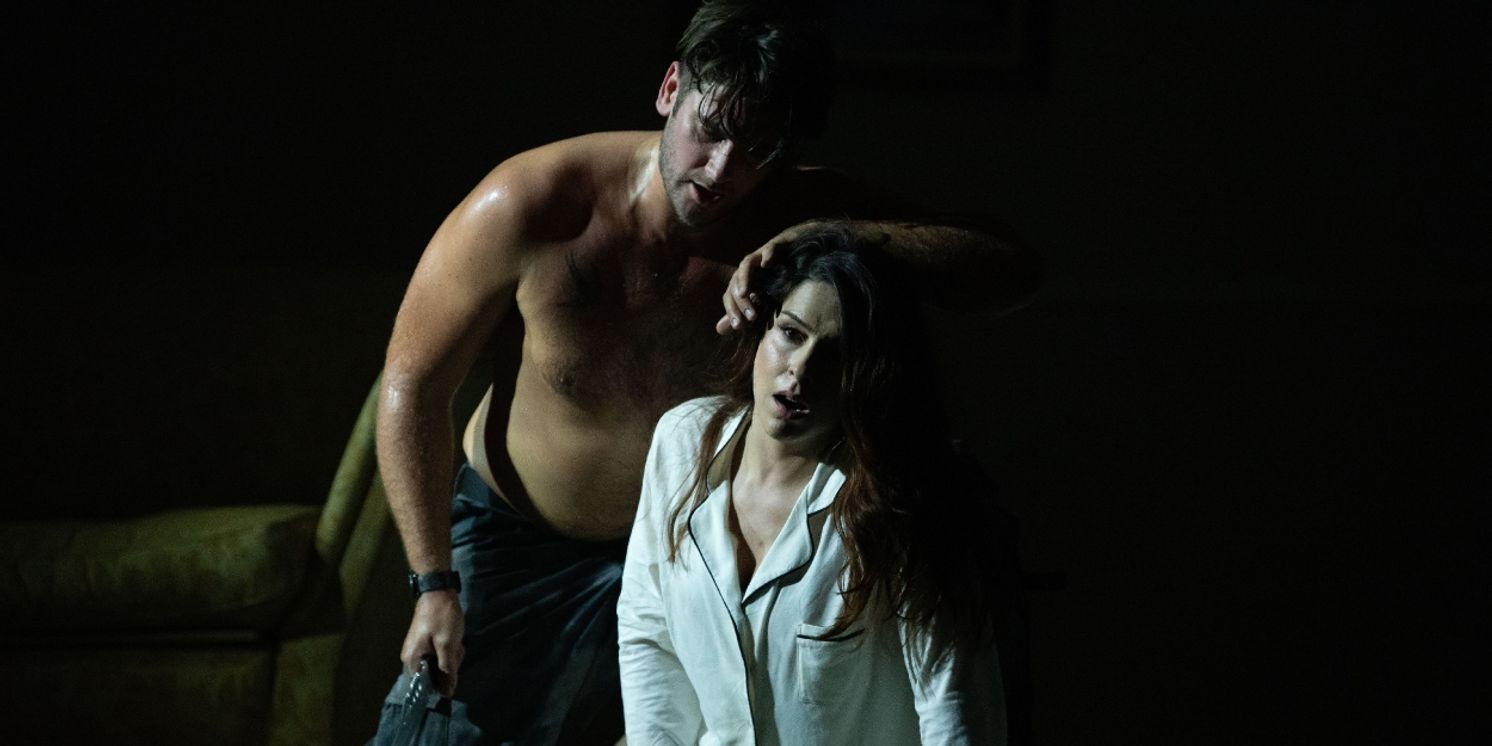Review: THE RAPE OF LUCRETIA, Royal Opera House
Oliver Mears' new production of Britten's chamber opera gives us lots to think about, not so much to feel


There is a growing trend of operas drawing inspiration from and working alongside the contemporary theatre world. Whether it is collaborations or borrowing ideas, in these tempestuous times for the performing arts our artistic ecosystem inevitably grows richer as a result.
Oliver Mears' new production of Britten's The Rape of Lucretia is directly inspired by one writer in particular. But the production is less of an homage to Sarah Kane and more a plundering of images from her plays: soldiers brandishing automatic rifles bursting into a scuzzy looking domestic setting. Straight from Blasted. Bunches of flowers placed precariously on the ground as if they have emerged from the carpet. Shoplifted from Cleansed. It's certainly an interesting artistic marriage, but it doesn't deliver substantial conclusions beyond the aesthetic mishmash.
Sarah Kane, a sort of playwright equivalent of a YBA whose short but highly influential career is mired in outrage and scandal, is all about the collision of sex, violence, and politics. The personal becomes political and the political becomes personal. Mears wants to bring that transgressive boundary-breaking to Britten's chamber opera.
He sprinkles in moments that alter the piece's moral fabric. Take the final moments of the opera where Junius unceremoniously photographs Lucretia's freshly blood-stained body presumably to rally political support against Tarquinius. It's as brutal as it is jarring; Lucretia's body becomes as objectified politically as it is sexually. The production is less of a meditation on female suffering and more an indictment of masculine cruelty.
But the terror can never quite hit home thanks to limits imposed by the opera itself. The chorus mediate the audience and the on-stage brutality with their reportage, stepping in and out of the narrative. A resulting emotional distance prevents the experience from burrowing under the skin. We see the barbarity, but we do not always feel it.
That is not to say the production does not have poignant moments: the tragic sequence where Lucretia reunites with Collatinus is particularly stirring, their emotional rupture bleeding for all to see. But in invoking Kane, there is an expectation for something truly transgressive which here goes unanswered.
Conductor Corinna Niemeyer galvanises Britten's score with meticulous attention. She allows the thirteen-piece Aurora Orchestra to undulate smoothly before ramping up tension in line with the each emotional beat. Her timing and precision add a confrontational immediacy to the tragic on-stage action. She charges the cast, a selection of Britten Pears Young Artists and Jette Parker Artists, like a jolt of electricity.
Their vocal performances are all strong as a result with Anne Marie Stanley's Lucretia engendering a particularly haunting quality in her weighty vocal performance. Her Lucretia crumbles over the course of the opera, a descent from graceful splendour into jittery histrionics. Joylon Loy's stormy sonorous vocal performance as Tarquinius is virile and concrete. But he carves room for just enough darkness behind the façade to suggest that the Prince of Rome is more insecure than he realises. It's a shame that the subtleties in his character's psychology are laid bare in a heavy-handed direction, a David Lynchian sequence consisting of dizzying lights and looming shadows.
There's lots to think about in Mears' production, but not so much to feel.
The Royal Opera's and Britten Pears Art's The Rape of Lucretia runs at the Royal Opera House's Lindbury Theatre until 22 November
Photo Credit: Camilla Greenwell
Reader Reviews
Videos

